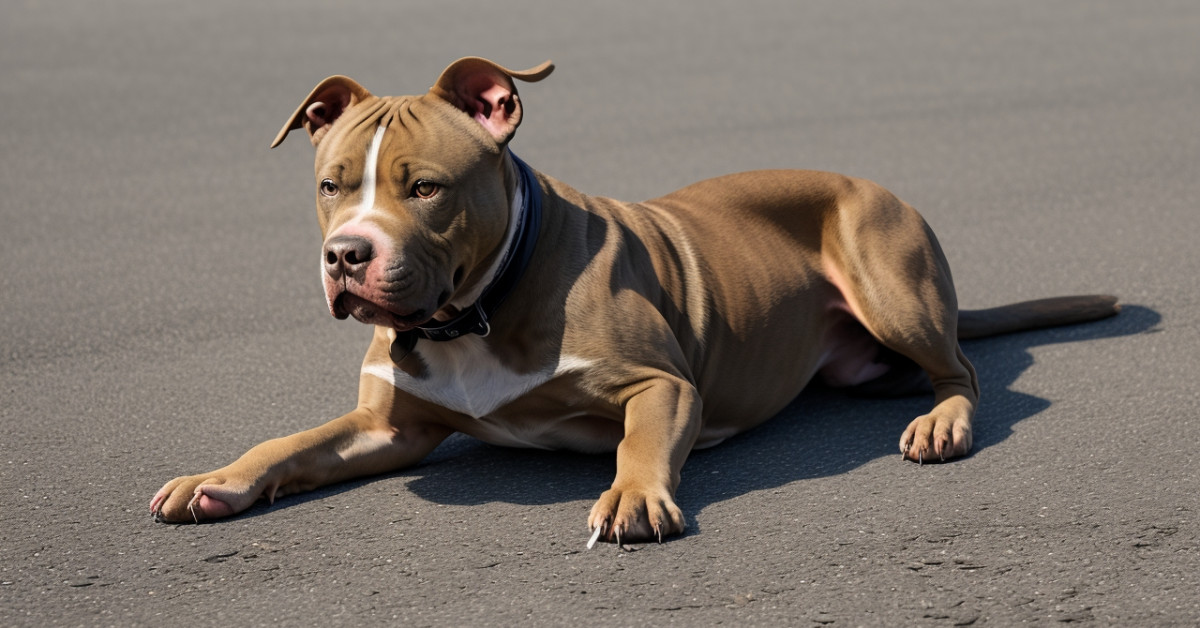Embark on a financial adventure with the 2024 Expenses Guide dedicated to the future Pit Bull parents out there! Are you mesmerized by the loyal gaze and athletic prowess of a Pit Bull but apprehensive about the dollar signs that come with it? Fear not! Dive into our comprehensive breakdown that unveils the real cost of owning a Pit Bull today. From chew toys to vet visits, we lay bare every expense, ensuring your journey with your new furry friend is as budget-friendly as it is joyful. Buckle up, future Pit Bull owners, and let’s crunch those numbers!
Bringing Home a New Pitbull: One-Time Costs
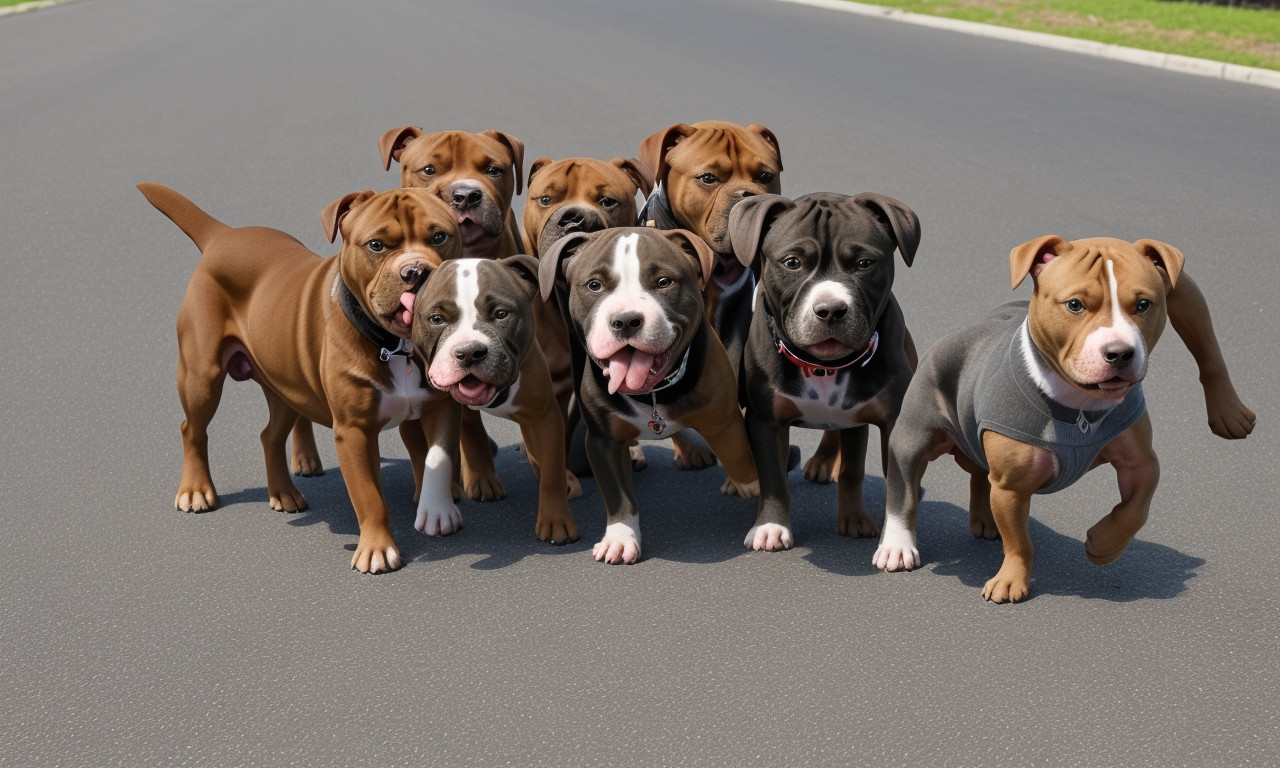
Owning a pit bull, like any pet, comes with its set of responsibilities and expenses. The costs can be broken down into initial one-time costs associated with bringing your new dog home and ongoing monthly and yearly expenses.
One-Time Costs for Bringing Home a New Pitbull
-
Purchase Price: If you’re purchasing a pit bull from a breeder, the price can vary greatly depending on the breeder’s reputation, location, the dog’s bloodline, and whether the dog is show quality or just a pet. Typically, you can expect to pay anywhere from $500 to $2,000. Adopting from a shelter or rescue can be more affordable, with adoption fees ranging from $100 to $300.
-
Spaying/Neutering: If the dog isn’t already fixed, having your pit bull spayed or neutered will prevent unwanted litters and can also provide health benefits. This surgery can cost from $200 to $500 depending on the region and the veterinary clinic.
-
Initial Vet Visits: Your new pet will need to be checked by a veterinarian shortly after you bring them home. Initial medical exams, vaccinations, deworming, and possibly microchipping come with varying prices, adding up to $100-$300.
-
Supplies and Equipment: When you first bring your pit bull home, you’ll need a variety of supplies. These include a collar, leash, crate, bed, food and water bowls, toys, grooming supplies, and possibly a fence for your yard. The starting costs could be between $200 and $500.
-
Training: It’s highly recommended to invest in professional training for a pit bull, especially if you’re a first-time owner. Obedience classes or one-on-one training sessions can help mitigate behavioral issues and strengthen your bond with your dog. Training costs can vary greatly but expect to spend between $150 to $500 for a basic training package.
Total One-Time Costs: The total one-time expenses for bringing home a new Pitbull can therefore range significantly, from as low as $650 to well over $3,000, depending on your choices and the needs of your specific dog.
It’s also wise to consider an emergency fund for unexpected costs such as accidents or illness. A well-rounded view of the potential financial commitments will help you assess if a pit bull is the right pet for you and ensure that you can provide a secure and happy home for your new companion.
Free

Owning a Pit Bull, or any pet for that matter, comes with various responsibilities, and financial commitment is one of the primary considerations. The cost of Pit Bull ownership can be broken down into initial costs, ongoing expenses, and potential emergency or health costs. Here are the typical expenses one might expect in 2024.
Initial Costs:
- Adoption or Purchase Fees: Adopting a Pit Bull from a shelter typically ranges from $100 to $300, while buying from a breeder may cost anywhere from $500 to $2,000 or more, depending on the lineage and breeder reputation.
- Spaying/Neutering: If not already done, this can cost between $200 and $500.
- Initial Vet Visits: Vaccinations, microchipping, and a general health checkup might add up to $100-$300.
- Supplies: Collars, leashes, food and water bowls, a crate, and a bed are necessities. This initial supply might range from $100 to $500.
Ongoing Expenses:
- Food: High-quality dog food tailored to Pit Bulls can cost around $30 to $80 per month.
- Routine Vet Checkups: Yearly vet visits for checkups and vaccinations may average $100-$300.
- Flea and Heartworm Prevention: Monthly preventative treatments can run $10-$50.
- Pet Insurance: To mitigate surprise costs, insurance could range from $20 to $60 per month, depending on the coverage.
- Grooming: Pit Bulls have short hair and require minimal grooming. This might cost up to $30 per session, but many owners handle it themselves to save money.
Emergency and Health-Related Costs:
- Emergency Vet Visits: Unexpected issues might arise, potentially leading to costs ranging from hundreds to thousands of dollars.
- Chronic Health Issues: If a Pit Bull develops a chronic condition, ongoing treatment could add $50 to $200 or more to monthly expenses.
- Training: Professional training might be considered for behavioral issues, which can cost several hundred to a few thousand dollars.
In conclusion, the annual cost of owning a Pit Bull in 2024 can easily range from around $1,000 to $3,000 or more, not including any unforeseen medical issues. It’s crucial for prospective Pit Bull owners to consider these expenses and be financially prepared for the commitment before bringing a Pit Bull into their homes. Remember, while cost is an important factor, the love and companionship a Pit Bull offers can be priceless.
Adoption

Owning a Pit Bull, like any pet, comes with a range of expenses that can vary greatly based on several factors including the dog’s health, where you live, and the level of care and lifestyle you intend to provide. Here’s a breakdown of expenses you might expect in 2024 if you’re considering adopting a Pit Bull:
Initial Costs:
-
Adoption Fees: If you’re adopting from a shelter, the cost can range from $100 to $300. This fee typically covers spaying/neutering, first vaccinations, and microchipping.
-
Supplies: Initial supplies such as a bed, collar, leash, crate, and bowls can add up to $50 - $200.
-
Food: A supply of quality dog food for the first month can range from $40 to $80.
Ongoing Costs:
-
Food: High-quality dog food for Pit Bulls can cost between $30 and $70 per month, depending on the size of your dog and the quality of food.
-
Veterinary Care: Annual check-ups, vaccinations, flea/tick prevention, and heartworm prevention can range from $200 to $600 per year. This does not include unexpected illnesses or injuries.
-
Training: Basic obedience classes might range from $150 to $300. More extensive training or behavioral consulting could be significantly more.
-
Grooming: Pit Bulls are not high-maintenance in grooming; you might spend $30-$50 monthly on grooming supplies or occasional professional grooming sessions.
-
Pet Insurance: Monthly premiums can range from $30 to $70, depending on coverage levels, deductible, and location.
Additional Costs:
-
Licensing: Many localities require dog licenses that can cost $10-$20 annually.
-
Dog Walking: If you need a dog walker, expect to pay $15-$25 per walk.
-
Boarding: During vacations, boarding your Pit Bull can cost $25-$50 per day.
-
Emergency Medical Costs: These can be highly variable, potentially thousands if there’s a serious health issue.
-
Spay/Neuter (if not done at adoption): This one-time cost can range from $200-$500.
-
Toys and Treats: Expect to spend around $5-$50 monthly to keep your Pit Bull entertained and rewarded.
-
Dog Park Membership: If applicable, fees can range from $30 to $150 annually.
When you add up these costs, the first year of owning a Pit Bull can range from approximately $500 to over $2,000, not including any unforeseen expenses. After the first year, annual costs may range between $1,000 and $3,000, again depending on unforeseen healthcare costs.
It is essential to remember that these are general estimates as of 2024 and costs can vary based on regional differences in pricing, changes in economic conditions, and personal choices regarding the quality of products and services purchased for your pet. Always plan for unexpected costs, and consider setting aside an emergency fund or investing in pet insurance to cover any unexpected veterinary expenses. Adopting a Pit Bull, or any pet, is a commitment both emotionally and financially, but it also brings immense rewards in companionship and love.
Breeder
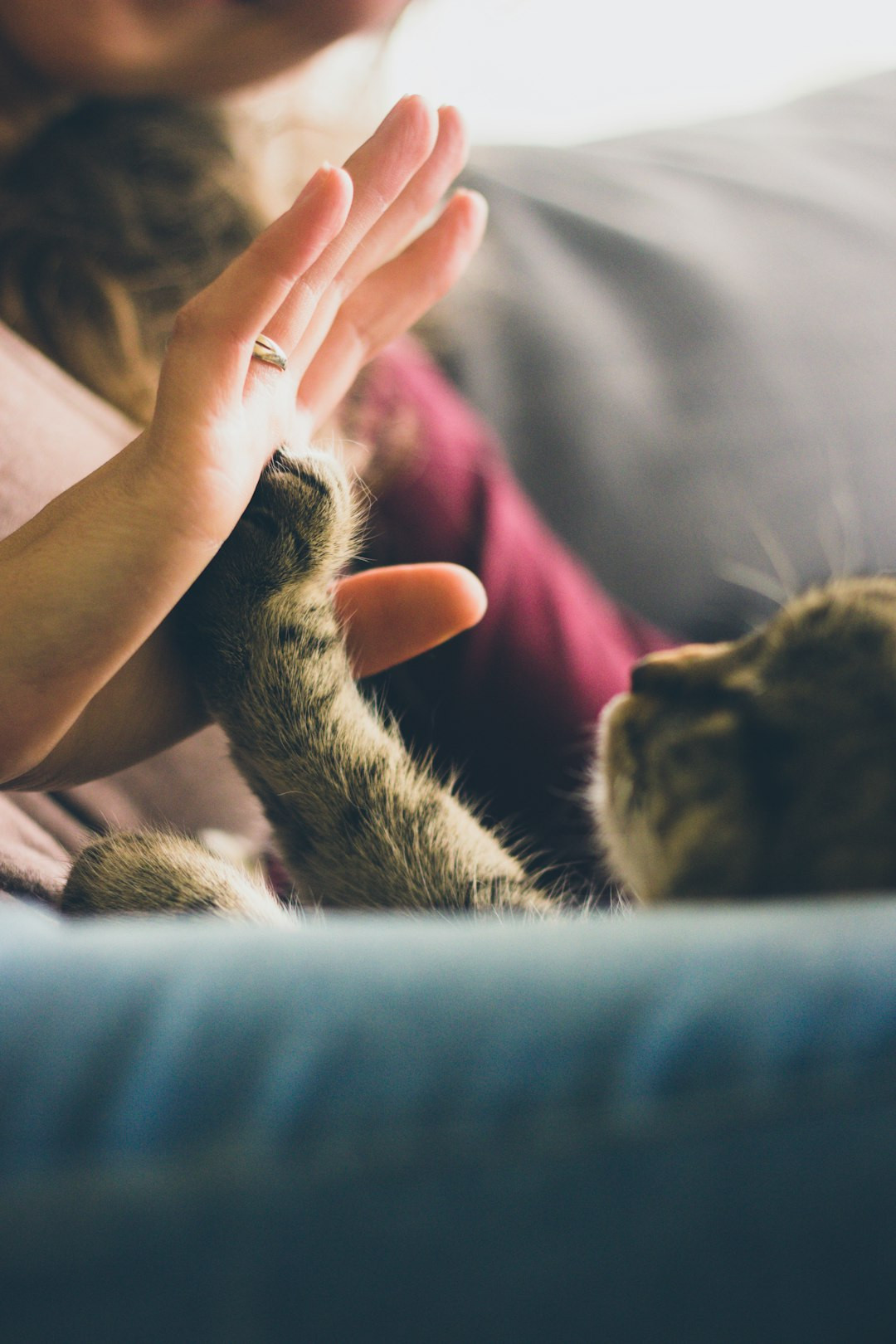
The cost of owning a Pit Bull, especially if one opts to acquire their pet from a breeder, can vary widely depending on various factors. As of 2024, the initial purchase price from a reputable breeder may range anywhere between $500 to $2,000 or more. This price is often reflective of the quality of the breeding, the dog’s bloodline, and whether the dog has been bred for specific traits or qualities.
Purchasing a Pit Bull from a breeder is just the beginning of the expenses. Owners should also consider the following costs:
-
Veterinary Care: Initial vaccinations, spaying or neutering, and other medical exams can add up. Annual check-ups are essential and can cost several hundred dollars, not including emergency visits or chronic health issues.
-
Food: High-quality dog food is crucial for a Pit Bull’s health and can cost anywhere from $30 to $80 per month, depending on the brand and the size of the dog.
-
Training: Obedience classes or private training for a Pit Bull can help prevent behavioral issues. This may cost anywhere from $50 to $200 per session.
-
Supplies: Basic supplies such as a bed, leash, collar, toys, and grooming tools may cost around $100 to $500 initially.
-
Insurance: Pet insurance can be a significant financial relief in the event of an illness or accident, with monthly premiums ranging from $25 to $50 or more.
-
License and Microchipping: Licensing fees can vary by location but are typically nominal, while microchipping is usually a one-time fee of around $50.
-
Miscellaneous: Treats, boarding, additional grooming, and unexpected costs can add up. It’s a good idea to budget an extra $500 to $1,000 per year for unforeseen expenses.
Overall, the first year of owning a Pit Bull can be the most expensive, with the first-year cost potentially exceeding $3,000, including the purchase price. After the initial year, owners should expect an ongoing expense of approximately $1,000 to $3,000 per year, depending on the cost of veterinary care, quality of food, and additional services like pet sitters or walkers.
It is vital for potential Pit Bull owners to consider the long-term commitment when it comes to finances and not just the initial purchase from the breeder. Responsible ownership means ensuring you can provide for the dog’s well-being throughout its life.
Initial Setup and Supplies
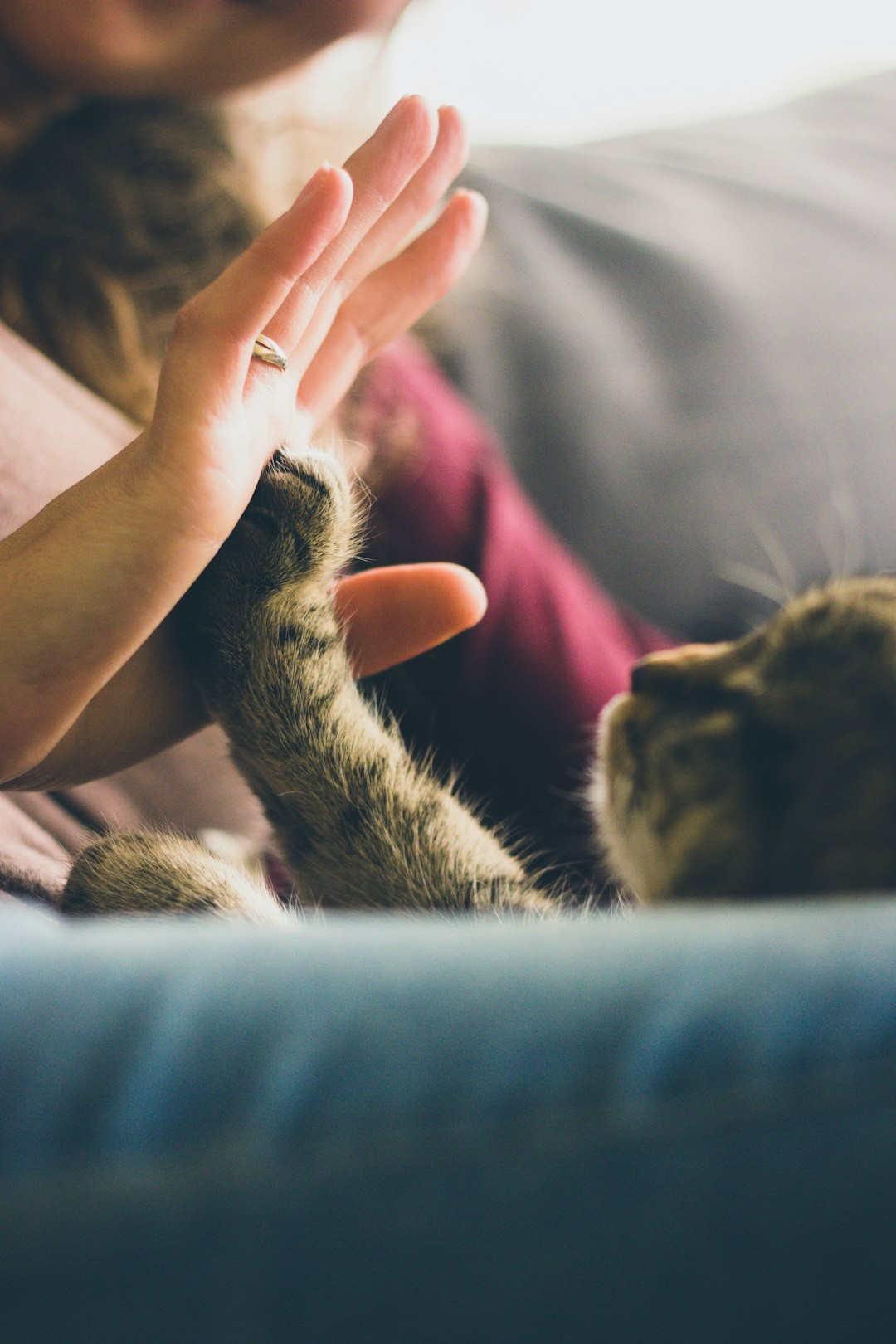
Owning a Pit Bull involves various costs for initial setup and supplies. As of 2024, you can expect the following expenses:
-
Purchase Price: Adopting a Pit Bull from a shelter may cost between $100-$300. Purchasing from a breeder could range from $500 to $2,000 or more, considering the pedigree and location.
-
Spaying/Neutering: This one-time cost varies from $50 to $500 depending on your location, the clinic, and the dog’s health status.
-
Initial Veterinary Visits: First-year vet visits can total $50 to $300 excluding any additional treatments or medications.
-
Vaccinations: Essential for puppies, the series of initial vaccinations can cost $75 to $200.
-
Microchipping: Getting your dog microchipped usually costs about $40-$60.
-
Food: High-quality dog food for a Pit Bull averages between $200 to $400 for the first year. This can vary based on the dog’s size, age, and dietary needs.
-
Bedding: A quality dog bed might range from $30 to $100.
-
Collar, Leash, and Identification Tags: The initial expenditure here could be around $20 to $50.
-
Crate: A sturdy crate for a Pit Bull can cost $30-$120 depending on size and materials.
-
Toys and Chews: Sufficient toys and chews to keep your Pit Bull entertained may cost $50 to $150 annually.
-
Training: Basic training classes or materials could run from $50 to $300. This price can increase substantially for advanced or specialized training.
-
Grooming Supplies: Brushes, shampoo, nail clippers, and other grooming tools may set you back $30 to $100.
-
Preventative Medications: For heartworm, fleas, and ticks, annual costs could average $120 to $300.
The actual setup and ongoing costs can vary widely depending on personal choices, your dog’s needs, local prices, and any unforeseen health issues. It’s wise to set aside an emergency vet fund for unexpected medical costs as well. Regular pet insurance can also mitigate some expenses but will add to your monthly costs.
When budgeting for your new Pit Bull, also remember to factor in the cost of dog walking (if you’ll be using that service), pet boarding or pet-sitting for times when you need to travel, and any home modifications (like fencing) that might be necessary for your Pit Bull’s safety and exercise needs.
List of Pitbull Care Supplies and Costs
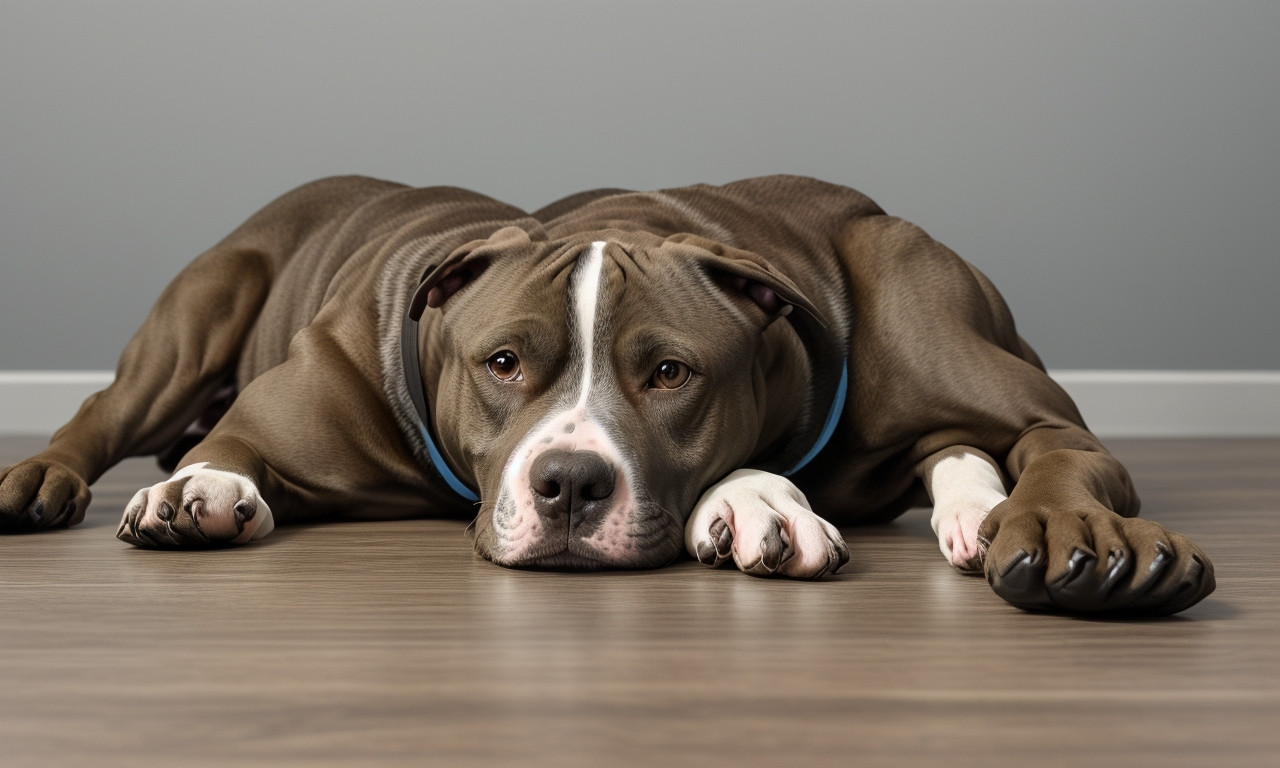
Owning a Pit Bull, like any other pet, involves several expenses that can be grouped into initial costs, ongoing costs, and potential unexpected expenses. Below is a breakdown of the estimated costs for owning a Pit Bull, taking into account the required care supplies and potential expenses one might incur in 2024.
Initial Costs:
- Adoption or Purchase Fee: $100 - $500
- Spaying/Neutering: $50 - $200
- Initial Veterinary Visit: $50 - $100
- Vaccinations: $80 - $150
- Microchipping: $40 - $60
- Crate: $30 - $120
- Bedding: $20 - $60
- Collars and Leashes: $20 - $50
- Food and Water Bowls: $10 - $40
Ongoing Costs:
- High-Quality Dog Food: $30 - $80 per month
- Treats: $10 - $30 per month
- Monthly Heartworm Prevention: $8 - $15 per month
- Flea and Tick Prevention: $10 - $40 per month
- Toys: $50 - $150 per year
- Grooming Supplies: $30 - $100 per year
- Routine Veterinary Check-ups: $50 - $250 per visit (1-2 times per year)
- Obedience Training or Classes: $50 - $200 for a course
Unexpected Expenses:
- Emergency Veterinary Care: Can range from $500 to several thousand dollars, depending on the issue
- Health Screenings and Tests: $100 - $300
- Medications for Illnesses: Variable depending on the condition
- Additional Accessories (dog clothing, additional leads, travel accessories, etc.): Variable
These costs can vary widely by region and by the individual needs of the dog. The listed ranges are to provide a general idea and budgeting framework for potential Pit Bull owners. It’s important to remember that costs can increase with inflation or due to special circumstances, such as health issues or changes in lifestyle that require additional expenditures. Owners should always be prepared for the financial commitment of pet ownership and should consider establishing a pet emergency fund to cover unexpected costs.
Regularly review your pet’s needs and adjust your budget accordingly to ensure your Pit Bull remains happy, healthy, and well-cared for throughout its life.
How Much Does a Pitbull Cost Per Month?
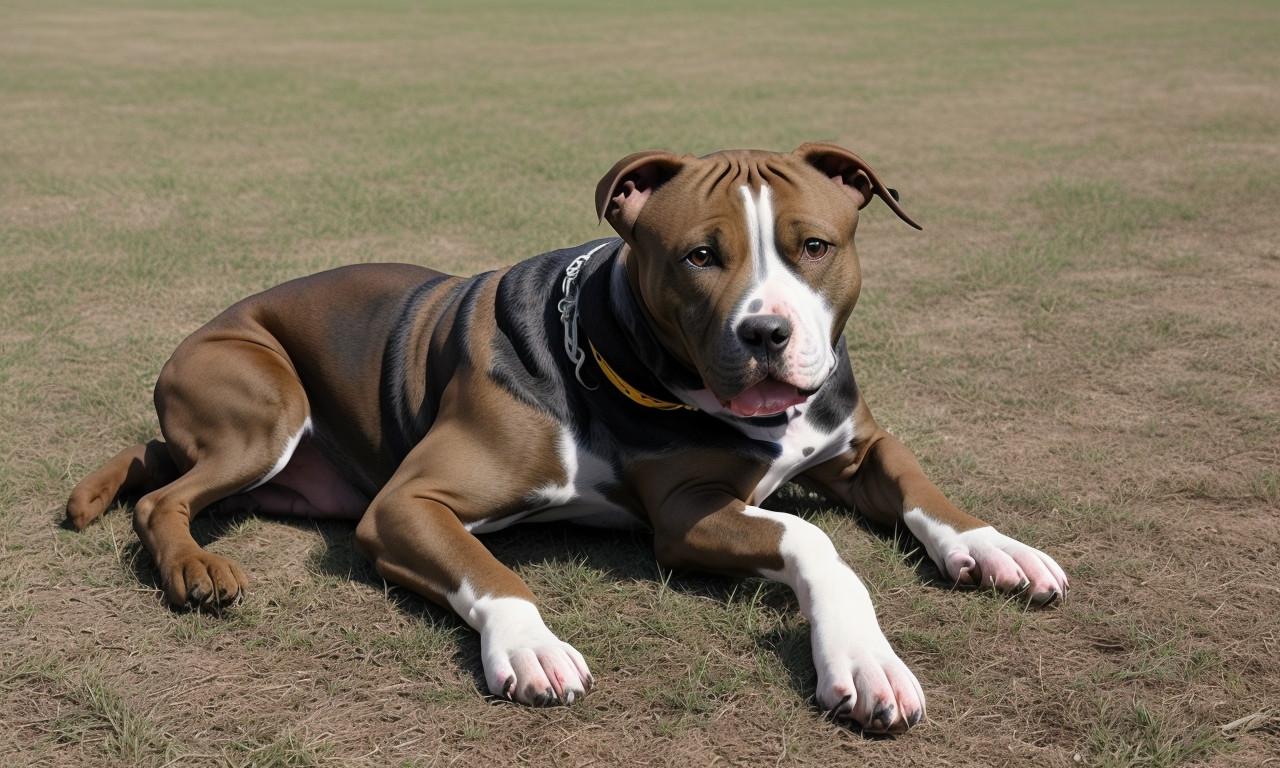
Owning a Pit Bull can be a rewarding experience, but it comes with various expenses that should be considered before bringing one into your home. The cost of owning a Pit Bull per month can vary significantly based on several factors including food, routine veterinary care, training, grooming, and unexpected health issues or emergencies. Here’s a breakdown of potential monthly expenses for a Pit bull:
-
Food: Depending on the size and activity level of your Pit Bull, high-quality dog food’s monthly cost can range between $40 to $80. Puppies may be at the higher end due to their growth needs.
-
Veterinary Care: Routine vet visits can average around $20-$30 per month if the cost is amortized over the year. This does not include the cost of flea, tick, and heartworm prevention, which can add another $10-$20 per month.
-
Pet Insurance: Pet health insurance can cost anywhere from $30 to $50 a month, but it could save you money in the long run if your Pit Bull encounters serious health issues.
-
Grooming: Pit Bulls have short hair and relatively low grooming needs, but you might still spend around $10-$20 per month on supplies or professional services.
-
Training: Initial obedience training can be a one-time cost, but if you opt for continuous training or specific behavior training, this could add $40 to $100 or more to your monthly expenses.
-
Miscellaneous: Toys, bedding, leashes, collars, and other supplies can add $10-$30 to the monthly cost. Replacement of these items isn’t typically a monthly expense but should be averaged over the year.
-
Emergency/Savings: It’s wise to set aside $20-$50 a month for emergencies or unanticipated expenses.
Adding it all up, the average cost of owning a Pit Bull could range from $150 to $300 or more per month depending on individual circumstances and the level of care provided. It’s important to remember that costs can vary greatly based on where you live and the choices you make for your pet’s care. Be prepared to adjust your budget if your pet has special needs or you opt for higher-end products and services.
Health Care

Owning a pit bull, like any other pet, involves various expenses that can add up over time. To provide you with a comprehensive understanding of the costs associated with pit bull ownership in 2024, we’ll focus especially on the aspect of health care, which is a significant part of the financial commitment.
Initially, you should prepare for the cost of spaying or neutering your pit bull if you are not planning to breed your pet. This one-time expense can range from $50 to $200, depending on your location and the clinic you choose.
Regular veterinary visits for check-ups and vaccinations are essential for maintaining your pit bull’s health. Annually, you might spend anywhere from $50 to $300 on vaccines alone, including rabies, distemper, and bordetella.
Since pit bulls are prone to certain hereditary conditions like hip dysplasia, allergies, and heart diseases, it’s wise to set aside a budget for potential treatments or ongoing medications. The costs for addressing these health issues can range from a few hundred to several thousand dollars, particularly if surgery or long-term medication is needed.
Moreover, preventive care is crucial in avoiding costly treatments down the line. Monthly heartworm prevention averages around $5 to $15, while flea and tick prevention typically costs between $10 and $20 per month.
Investing in pet health insurance may be a worthwhile consideration to help manage unforeseen medical expenses. Premiums can vary broadly based on the level of coverage, deductible, and the age and health of your pit bull, but you might expect to pay anywhere from $30 to $70 per month for a policy with good coverage.
Dental care is another aspect often overlooked by pet owners. Professional dental cleanings may cost several hundred dollars, so setting aside a budget for dental health is a good practice.
Finally, unexpected illnesses or accidents can result in considerable veterinary bills. While the cost of emergency care can widely vary, it’s not unusual for surgeries and treatments to cost thousands of dollars.
To sum up, owning a pit bull in 2024 will require a keen focus on health care expenses:
- Spaying/Neutering: $50-$200
- Annual Vet Checkups & Vaccines: $50-$300
- Genetic Condition Treatments: Variable, potentially $1000+
- Preventive Medications: $5-$20 monthly
- Health Insurance: $30-$70 monthly
- Dental Care: Variable
Total annual healthcare costs for a pit bull could range from several hundred to a few thousand dollars depending on health status and any unforeseen issues. Planning a budget that accounts for the costs of regular care, preventive measures, and potential emergencies will ensure that you are financially prepared for the responsibility of pit bull ownership.
Food

Owning a Pit Bull, like any other dog breed, comes with its share of expenses that can add up over the course of the dog’s life. As we look forward to 2024, let’s explore the financial considerations specifically related to feeding your Pit Bull.
The cost of food for a Pit Bull will depend on various factors including the quality of food you choose, the size and appetite of your dog, and any special dietary needs or preferences it may have. Generally, Pit Bulls are medium to large dogs, so they will require more food than smaller breeds.
-
Dry Dog Food: For a basic estimate, high-quality dry dog food might cost anywhere from $30 to $60 for a large bag that could last about a month, depending on the brand and the Pit Bull’s size.
-
Wet Dog Food: If you prefer to feed your Pit Bull wet food, or a mix of wet and dry, you might spend roughly $2 to $3 per can. If one can per day is sufficient for your dog, that equates to about $60 to $90 per month.
-
Fresh or Raw Diet: Should you opt for a fresh, human-grade, or raw diet for your Pit Bull, your monthly food costs could escalate significantly. For a fresh food delivery service or high-quality raw food, you could be looking at upwards of $100 to $150 per month.
-
Treats and Supplements: In addition to regular meals, treats, and supplements can also impact your budget. A monthly allocation of $10 to $30 should be considered, depending on the type and quantity of treats and whether your Pit Bull requires any dietary supplements.
-
Special Diets: If your Pit Bull has specific health issues requiring a veterinary-prescribed diet, the costs can vary greatly, often exceeding regular food expenses.
Inflation and the price of goods must be taken into account for 2024 and beyond. Food prices for pets have been trending upwards, and they are likely to continue to do so. As such, a buffer should be added to any estimates.
Finally, it’s crucial to account for unexpected expenses, like food price increases or changes in your Pit Bull’s diet due to health issues, which could affect the total cost of ownership.
To ensure you’re financially prepared for the cost of feeding your Pit Bull in 2024, it’s advisable to budget on the higher end of these estimates and to keep an emergency fund for any unforeseen changes in food prices or your dog’s dietary needs.
Tick and Flea Medications
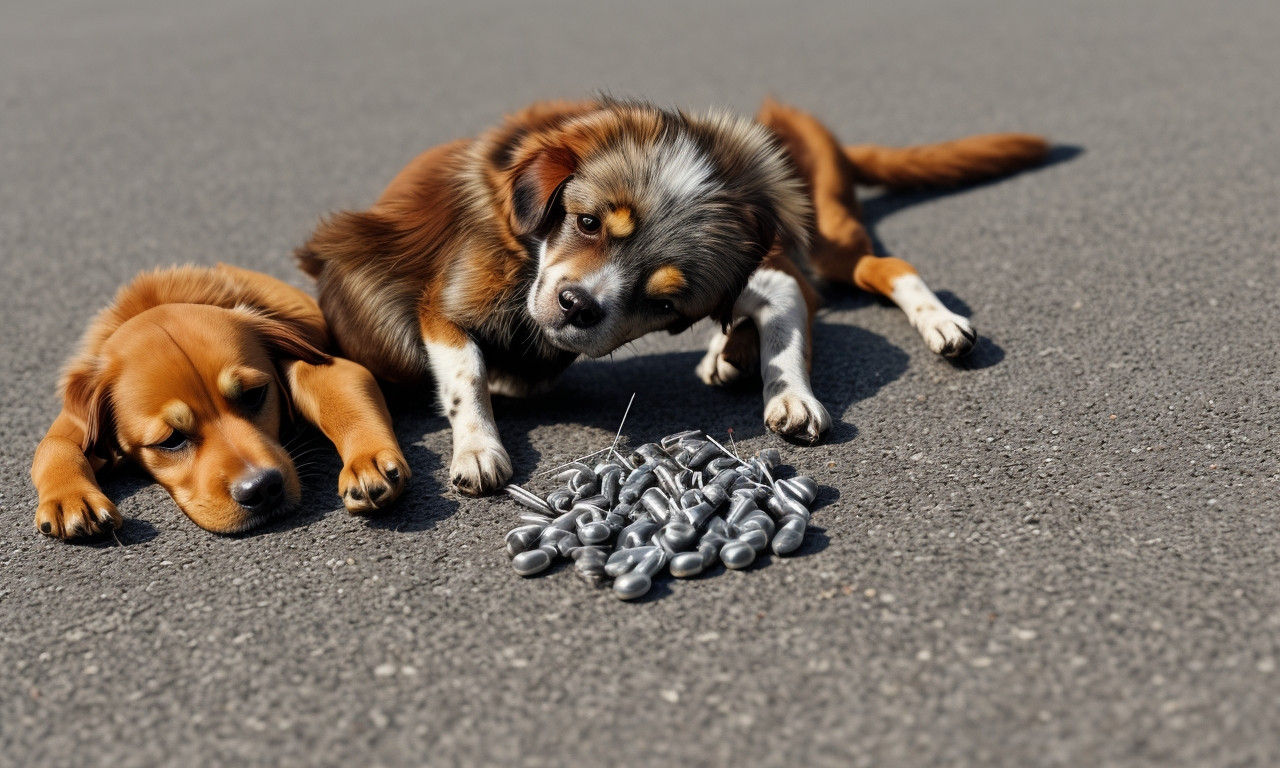
Owning a Pit Bull, like any other dog breed, comes with various expenses that can add up over time. In 2024, the cost of maintaining the health and well-being of this beloved breed will include recurring expenses such as tick and flea medications.
Tick and flea medications are essential in ensuring that your Pit Bull remains healthy and free from parasites that can cause disease and discomfort. The price of these medications can vary based on the product type (topical treatments, oral tablets, collars, or sprays), brand, and the size of your dog since dosages are often weight-dependent.
On average, monthly flea and tick prevention treatments may range from $10 to $60. However, prices can be higher for newer or prescription medications. Over the year, this can total anywhere from $120 to $720, depending on your chosen product and any additional treatments that may be necessary.
It’s important to factor in these expenses when budgeting for your Pit Bull’s yearly care to ensure you can provide the best possible quality of life for your pet. Additionally, regular veterinary check-ups can help catch any flea or tick infestations early, potentially reducing the costs associated with treating any related health issues. Remember also to consider that prices can fluctuate based on your location and market changes.
Pet Insurance
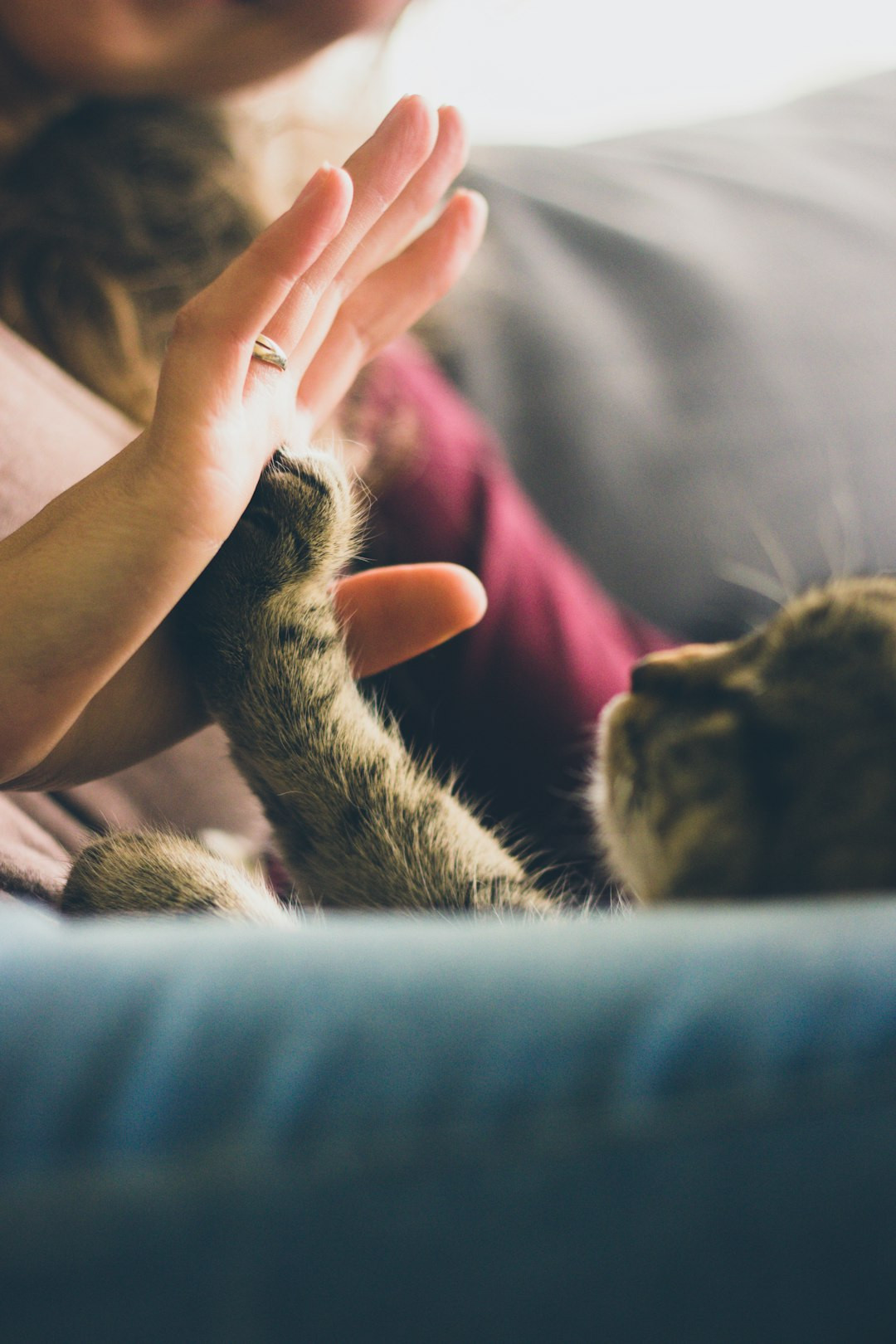
Owning a Pit Bull, like any other pet, comes with recurring expenses that you’ll need to budget for to ensure a happy, healthy life for your canine companion. When planning for 2024, you should consider a variety of costs, including food, routine veterinary care, training, supplies, and importantly, pet insurance.
Pet Insurance: Pit Bull owners should carefully consider investing in pet insurance. Coverage plans vary, but they typically cover accidents, illnesses, and in some cases, routine check-ups or preventative care. The cost of insurance for Pit Bulls might be higher than other breeds due to the misconception that they are prone to aggression, although this breed is not inherently aggressive. Also, some companies might have breed restrictions or higher premiums due to the healthcare issues common to the breed like hip dysplasia, allergies, or cardiac concerns. Premiums can range from $30 to $70 per month, depending on the breadth of the coverage and the deductible chosen.
Here’s a breakdown of other potential expenses:
-
Food: A healthy diet is crucial. High-quality dog food can cost $40 to $60 per month.
-
Initial Medical Costs: Spaying/neutering, microchipping, and initial vaccines can total $200-$500.
-
Routine Veterinary Care: Yearly check-ups are essential and can cost $200-$300, excluding any unexpected illnesses or injuries.
-
Training: Proper training is crucial for a well-behaved Pit Bull. Group training classes may range from $150 to $250 for a several-week session.
-
Supplies: Beds, leashes, collars, toys, and grooming tools can add up. Expect initial costs of $100-$300, with ongoing replacement and additions over time.
-
Emergency Savings: It’s advisable to set aside $1,000-$2,000 or more for emergencies.
-
Miscellaneous Expenses: Dog walking, boarding, and other services can accrue costs depending on usage.
Overall, the first year of owning a Pit Bull can be the most expensive due to initial costs and might range from $1,000 to over $2,000, not including pet insurance. Annual costs post the first year will likely decrease but still range significantly from around $500 to $2,000 or more, again not considering insurance premiums.
Do keep in mind that these figures are estimates and can fluctuate based on the cost of living in your area, the choices you make for your dog’s care, and unexpected health concerns. It is always wise to budget for more than you anticipate to be well-prepared for your Pit Bull’s needs.
Entertainment

Owning a Pit Bull, or any dog, comes with various expenses that potential dog owners should be aware of before bringing a furry friend home. In 2024, these expenses can be categorized into initial costs, recurring costs, and unexpected costs.
Initial costs consist of the purchase price or adoption fee, which can range from a nominal shelter fee to several hundred dollars for a purebred Pit Bull. Additionally, initial supplies such as a collar, leash, crate, bed, food and water bowls, and toys are required, which can sum up to $100-$500 or more.
Recurring costs are ongoing expenses that include high-quality dog food, treats, routine veterinary care (vaccinations, check-ups), preventative medications (flea, tick, heartworm), grooming, and possibly pet insurance. Owners should budget around $500-$1,000 annually for food and treats alone, depending on the size and appetite of their Pit Bull. Veterinary care varies but can fall between $200 and $500 per year for basic needs, and at least $200-$600 for pet insurance premiums.
In terms of entertainment, costs can be minimal or significant depending on the activities. Basic toys and playtime at home or in parks are cost-effective, while specialized training, dog sports, or regular visits to doggy daycare for socialization can add hundreds to thousands of dollars per year to the budget.
Unexpected costs involve emergency veterinary treatments, which can incur charges in the range of $500 to over $5,000 for serious health issues or accidents. It is advisable for owners to set aside a contingency fund or ensure their pet insurance can cover such events.
Thus, the cost of owning a Pit Bull for the first year can average between $1,000 and $3,000, with subsequent years averaging $500-$3,000 annually, not accounting for emergencies or unique entertainment and training activities. Proper planning and budgeting are essential when deciding to add a Pit Bull to your family.
Total Monthly Cost of Owning a Pitbull
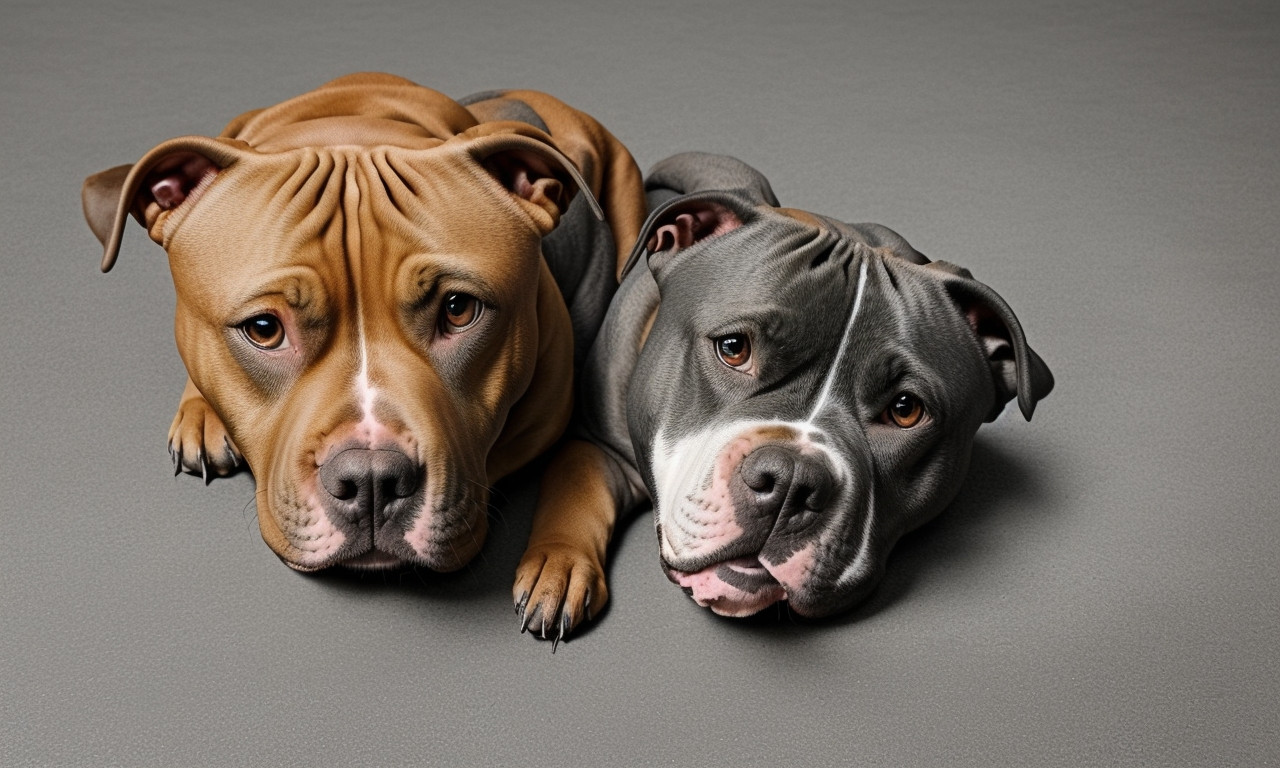
Owning a Pit Bull, like any pet, requires a financial commitment that includes initial costs and ongoing expenses. As of the 2024 guide, here are some of the potential expenses you can expect when budgeting for a Pit Bull:
-
Initial Costs:
- Adoption or Purchase Fee: Depending on where you get your Pit Bull, the fee can range from $100-$500 if you’re adopting, or $500-$2,000+ if you’re purchasing from a breeder.
- Spaying/Neutering: If not included in the adoption fee, it typically costs between $200-$500.
- Initial Veterinary Visit: This might include vaccines, microchipping, and an overall health check, costing around $100-$300.
- Supplies: Items such as a bed, crate, collar, leash, and toys can total $100-$500.
-
Total Monthly Cost:
- Food: High-quality dog food tailored to your Pit Bull’s size and age can cost $40-$80 per month.
- Veterinary Care: Routine care, flea/tick prevention, and vaccinations can average $20-$40 monthly, but this doesn’t include emergency visits or chronic conditions.
- Pet Insurance: Ranges from $30-$70 per month but can save money on unexpected veterinary costs.
- Grooming: Pit Bulls have short hair and need minimal grooming. Budgeting about $30-$50 every few months for nail trimmings or professional cleanings is reasonable.
- Training: Professional training sessions can cost $50-$150 per month, although it may be less if your dog only needs occasional refresher courses.
- Miscellaneous: Toys, treats, and other miscellaneous expenses might amount to $20-$50 per month.
Combining these estimates, the total monthly cost for owning a Pit Bull can range broadly from $150-$400, depending on factors like your pet’s health, your location, and the level of care and amenities you choose to provide.
Budgeting for emergencies, such as accidents or illnesses, is also important. Setting aside a small amount each month can help cushion unexpected expenses. Remember, these are estimates, and costs can vary significantly. Proper research and planning for your specific situation are essential to ensure you’re financially prepared to welcome a Pit Bull into your life.
Additional Costs to Factor In
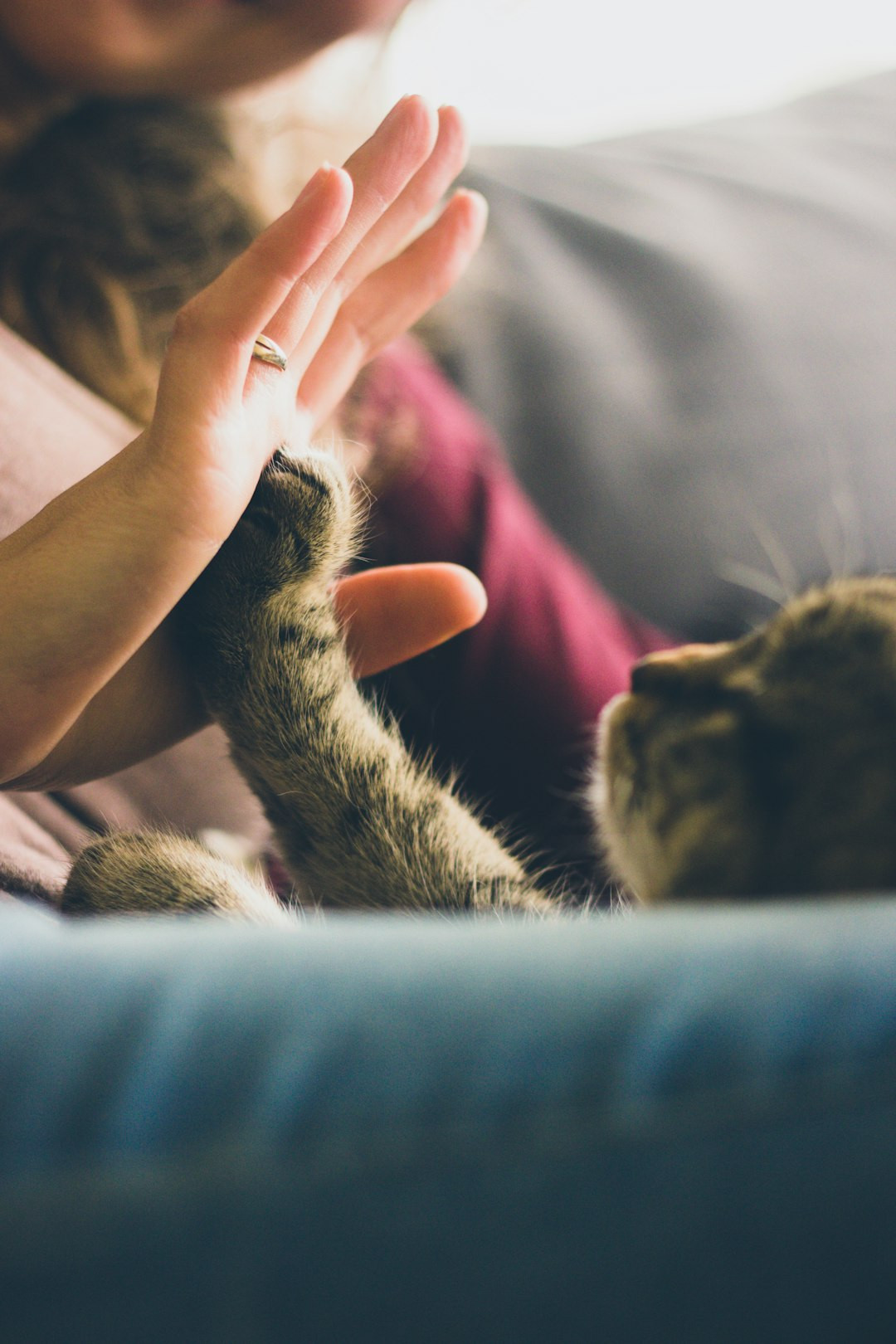
Owning a pit bull, like any pet, will involve a variety of expenses beyond the initial cost of adoption or purchase. The following is a 2024 guide to the costs associated with owning a pit bull, emphasizing additional costs to factor in after acquisition:
-
Food: Quality dog food for a pit bull can range from $30 to $80 per month depending on the brand, ingredients, and your dog’s size and dietary needs.
-
Veterinary Care: Routine vet checkups typically range from $50 to $250 per visit. Additionally, there will be costs for vaccinations, which might be between $75 to $200 annually, and potential emergency health expenses which can be considerably high (often $500+).
-
Spaying/Neutering: If your pit bull isn’t already spayed or neutered, this can cost between $200 and $500.
-
Training: Basic obedience classes might cost between $100 and $200, while more advanced training or behavioral modification can cost several hundred dollars.
-
Grooming: Pit bulls have short hair and thus relatively low grooming needs. However, expect to spend $30-$60 on grooming tools or professional services occasionally.
-
Flea and Tick Prevention: Monthly preventative treatments can range from $10 to $20 per month.
-
Heartworm Prevention: Monthly preventative medication typically costs about $8 to $15.
-
Supplies: Initial supplies, including a crate, bed, collars, leashes, and toys, can amount to $100-$500.
-
Pet Insurance: While optional, pet insurance is recommended to help with unexpected medical costs and can range between $200 and $600 annually for a basic plan.
-
Licenses: Many areas require dog licenses, which can cost between $10 and $20 annually.
-
Miscellaneous Expenses: These can include dog walking (if you’re unable to do it yourself), which can cost between $15 and $25 per walk, and boarding, which can be around $25 to $50 per night.
-
Emergency Fund: It’s wise to set aside $1000-$2000 for unexpected health issues or emergencies.
Remember, these are average costs and can vary depending on location, the individual needs of your pit bull, and fluctuating market prices. Also, take into consideration that as your pit bull ages, medical costs may increase due to age-related issues. It’s also worth noting that adopting a pit bull from a shelter can often save on some initial costs as many are already spayed/neutered, vaccinated, and sometimes microchipped.
Owning a Pitbull on a Budget
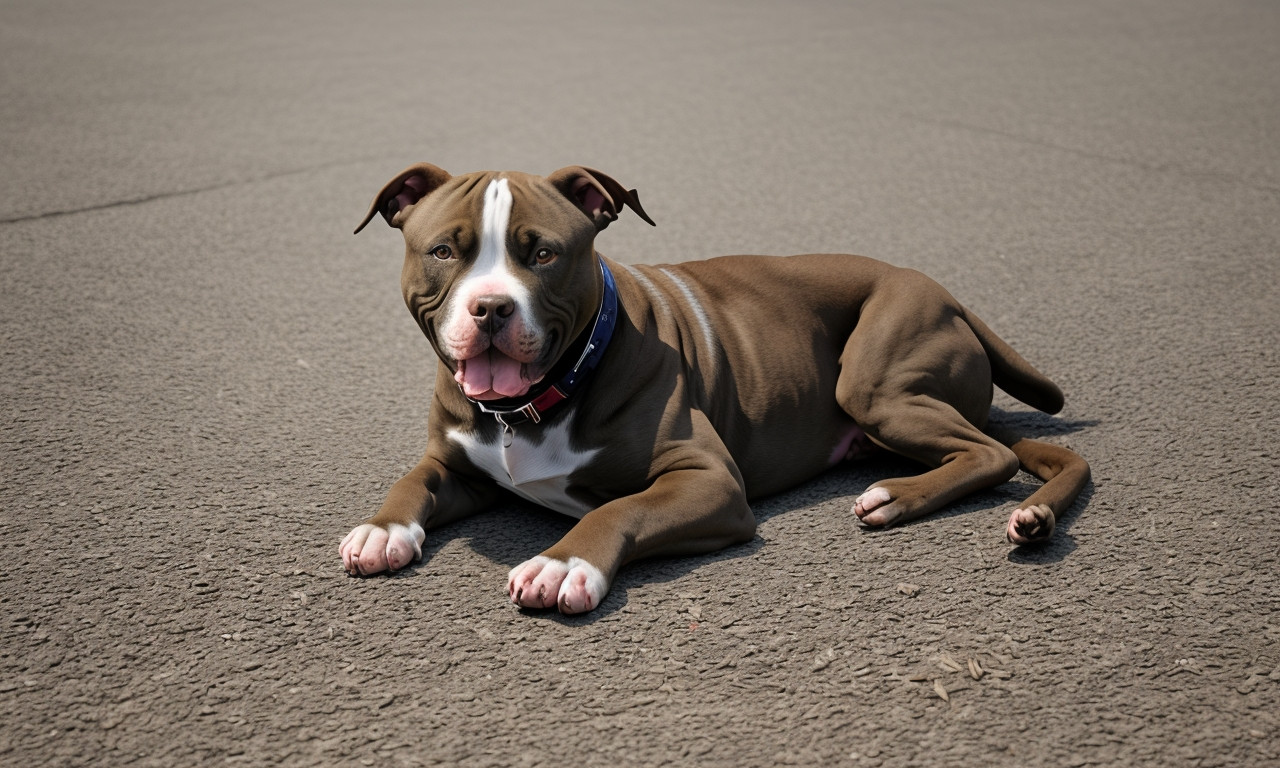
Owning a Pit Bull can be a rewarding experience, but it’s important to understand the financial commitment you’re making when you decide to bring one of these dogs into your home. The expenses of owning a Pit Bull – or any dog, for that matter – include initial costs as well as ongoing expenses throughout the dog’s life.
Initial Costs
-
Adoption or Purchase Fees: These can range from $100 to $500 for an adoption fee if you’re rescuing a dog, or from several hundred to a few thousand dollars if you’re purchasing from a reputable breeder.
-
Spaying/Neutering: If not already done, this is a vital step and costs around $200-$500.
-
Initial Veterinary Visit: Initial vaccinations, wellness check, and possible flea, tick, and heartworm medications can run from $75 to $200.
-
Supplies: Including a crate, bed, collars, leashes, food and water bowls, toys, etc. This can amount to $200-$500 initially.
Ongoing costs
-
Food: High-quality dog food is crucial for your Pit Bull’s health; expect to spend $30-$70 per month.
-
Veterinary Care: Annual check-ups are a must and may cost $50-$100 for the visit, plus additional costs for vaccines or any extra treatments.
-
Flea, Tick, and Heartworm Prevention: This preventive medication is a must-have and can cost $10-$30 per month.
-
Pet Insurance: While optional, pet insurance is advisable and can cost $30-$70 per month, depending on the coverage level.
-
Grooming: Pit Bulls have short hair, so grooming costs are relatively low, perhaps $30-$50 a few times a year.
-
Training: Basic obedience training or classes can range from $50-$200, depending on the length and type of training you choose.
-
Miscellaneous: Toys, replacing worn-out supplies, licenses, and unexpected veterinary expenses can add up. Budget at least $10-$50 per month for these.
On a budget, it’s wise to prioritize essential needs and find cost-saving measures. Purchase supplies in bulk, consider high-quality but mid-range dog food, and look out for low-cost vaccination clinics. Also, be sure to set aside an emergency fund for unexpected expenses, which can be a lifesaver when unanticipated health issues arise.
Remember, adopting a Pit Bull often costs less initially than purchasing from a breeder and many come spayed/neutered and vaccinated, lowering initial costs. Plus, you’re providing a home to a dog in need.
By planning carefully and making thoughtful choices, you can manage the costs of owning a Pit Bull without sacrificing their health or happiness. It helps to do extensive research, look for deals, and always put aside a little each month for the unexpected. That way, you can enjoy the companionship of your Pit Bull without getting overwhelmed by the expenses.
Saving Money on Pitbull Care
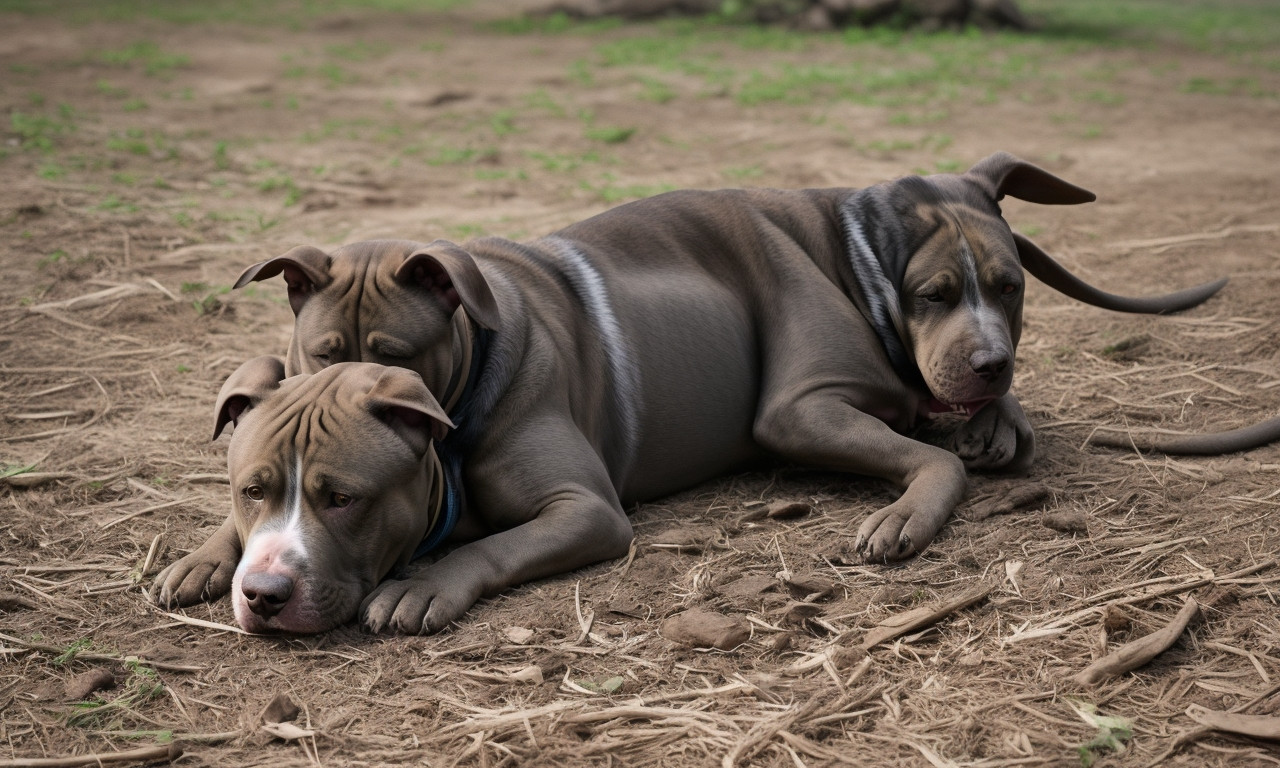
Owning a Pit Bull, like any other pet, comes with its own set of yearly expenses. As of 2024, let’s break down the costs to consider and also explore ways to save money while ensuring your Pit Bull remains healthy and happy.
Initial Costs
- Adoption or Purchase Fees: Adopting a Pit Bull from a shelter might cost anywhere from $100 to $250. Purchasing from a reputable breeder can range from $500 to $2,000+.
- Spaying/Neutering: If not already done, expect to pay $200 to $500.
- Initial Medical Exam: A vet check-up can cost $50 to $100.
- Vaccinations: First-year vaccinations can be $75 to $100.
- Microchipping: Around $45.
Supplies
- Food and Water Bowls: $10 to $50.
- Crate: $40 to $150 depending on size and quality.
- Bedding: $20 to $80.
- Leash and Collar: $20 to $50.
- Toys: $50 to $100 a year.
- Grooming Supplies: $30 to $100.
Ongoing Costs
- Food: Expect to spend $200 to $600 a year on high-quality dog food.
- Routine Vet Visits: Annual check-ups cost between $45 to $200.
- Heartworm Prevention: $60 to $120 annually.
- Flea and Tick Prevention: $100 to $200 per year.
- Training: Group classes range from $50 to $150 for basic training.
Emergency Medical Costs
- These can be unexpected and vary greatly, but having an emergency fund or pet insurance can be a buffer.
To save money without compromising on the care of a Pit Bull, consider the following:
- Adopt a Pit Bull from a shelter or rescue to save on initial purchase costs and give a dog in need a home.
- Invest in Quality Food in bulk or on sale to save in the long run. Better nutrition can lead to fewer health-related expenses.
- Preventative Care is crucial. Keep up with vaccines and regular vet visits to avoid costly treatments for preventable diseases.
- DIY Grooming: Learn to groom your Pit Bull at home to save on professional grooming services.
- Training: Consider online resources or books for training, instead of expensive personal trainers.
- Pet Insurance: Investigate pet insurance options that can help manage unexpected medical expenses.
It’s also wise to plan for the annual increase in costs due to inflation and changes in your Pit Bull’s health as they age. By anticipating and budgeting for these costs, and implementing cost-saving measures, you can enjoy the companionship of your Pit Bull without stretching your finances too thin.
Summary

Owning a Pit Bull in 2024 involves several expenses that can be broken down into initial and recurring costs. Initial costs encompass adoption or purchase fees, spaying/neutering, initial veterinary visits, vaccinations, microchip, essential supplies like a collar, leash, bed, crate, and food and water bowls. Recurring costs include high-quality dog food, ongoing veterinary care, annual check-ups, vaccines, flea and tick prevention, heartworm medication, training, grooming, toys and treats, pet insurance, and miscellaneous expenses such as boarding or pet sitting. These costs vary widely but generally range from a few hundred to several thousand dollars per year, depending on factors such as the dog’s health, size, needs, and the choices made by the owner for services and care.
